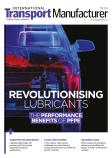With just over a month to go before the UK is due to leave the EU, the European automotive industry has made a united call for the UK and the EU to avoid a ‘no deal’ Brexit. The lead organisations representing vehicle and parts manufacturers across the EU, the European Automobile Manufacturers Association (ACEA) and European Association of Automotive Suppliers (CLEPA), as well as 21 national associations, including the Committee of French Automobile Manufacturers (CCFA), the German Association of the Automotive Industry (VDA), and the Society of Motor Manufacturers and Traders (SMMT), joined forces to stress the impact a ‘no deal’ Brexit would have on one of Europe’s most valuable economic assets.
The automotive industry is one of the EU’s biggest success stories and contributors to growth and wealth, producing 19.1 million vehicles a year and employing 13.8 million people across the wider sector – one in 16 of the EU’s workforce. Fundamental to this has been the deeply integrated nature of the industry, which has sought to maximise single market and customs union benefits to the advantage of businesses EU-wide.
European industry chiefs today warned that the repercussions of ‘no deal’ to this vital sector will be severe. The UK’s departure from the EU without a deal would trigger a seismic shift in trading conditions, with billions of euros of tariffs threatening to impact consumer choice and affordability on both sides of the Channel. The end of barrier-free trade could bring harmful disruption to the industry’s just-in-time operating model, with the cost of just one minute of production stoppage in the UK alone amounting to €54,700 (£50,000).
Meanwhile, WTO tariffs on cars and vans could add €5.7 billion (£5 billion) to the collective EU-UK auto trade bill, raising prices for customers if manufacturers cannot absorb the additional cost. Automotive manufacturers believe that such disruption and cost must be avoided, and that all effort should be made to deliver an orderly withdrawal of the UK from the EU.
Christian Peugeot, CCFA President, said, “Brexit is not just a British problem, we are all concerned in the European automotive industry, and even further. Be it as exporters to the UK market or producers locally, which we are both, we will inevitably be negatively affected.”
Bernhard Mattes, VDA President, said, “We regret Brexit. The United Kingdom is a fully integrated player in the value chain of the German Automotive Industry. More than 100 production facilities as well as research and development located in the UK prove our commitment to the UK-market as a number one market in the EU. In the view of the German automotive industry, therefore, everything has to be done to maintain the free movement of goods, of services, the freedom of capital and the freedom of movement for workers between the UK and the EU. At the same time, we acknowledge that the internal market and the cohesion of EU27 are a priority and a pre-condition.
“The EU and UK automotive industry need frictionless trade and would be harmed significantly by additional duties and administrative burden on automotive parts and vehicles. Consequently, the UK and the EU should undertake all necessary steps to avoid a ‘no deal’ Brexit.”
Mike Hawes, SMMT Chief Executive, said, “European Automotive is deeply integrated and the benefits of free and frictionless trade have helped our sector become one of Europe’s most valuable assets, delivering billions to economies and supporting millions of livelihoods across the EU. A ‘no deal’ Brexit would have an immediate and devastating impact on the industry, undermining competitiveness and causing irreversible and severe damage. UK and EU negotiators have a responsibility to work together to agree a deal or risk destroying this vital pillar of our economies.”
Erik Jonnaert, ACEA Secretary General, added, “Barrier-free trade is crucial for the continued success of the deeply integrated European auto industry, which operates some 230 assembly and production plants right across the EU. Brexit will have a significant negative impact on the automotive sector and a ‘no deal’ Brexit would greatly exacerbate those consequences, causing massive disruptions to an industry which is so vital to Europe’s economy. Even the repeated need to plan and implement contingency measures to deal with a disorderly Brexit is highly disruptive to our members. The European automobile industry therefore calls for all sides to rule out a ‘no deal’ scenario as soon as possible.”










